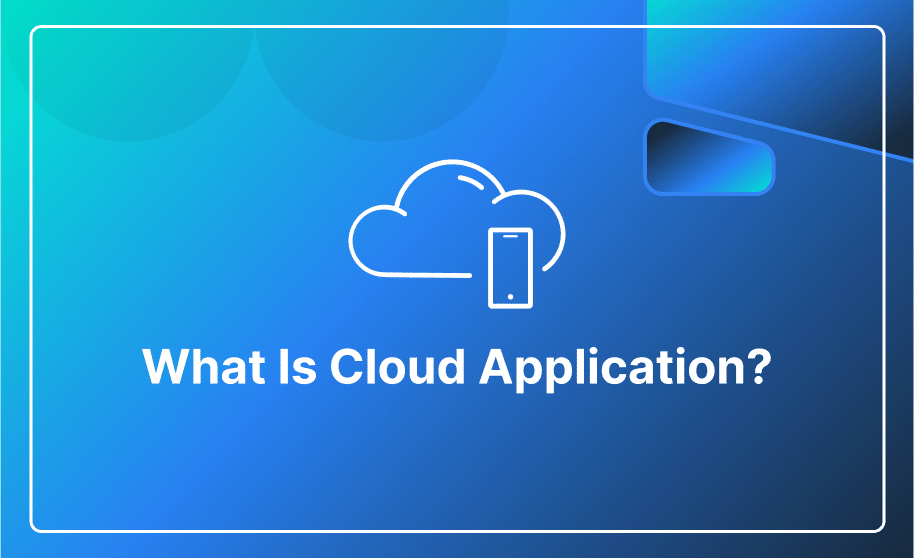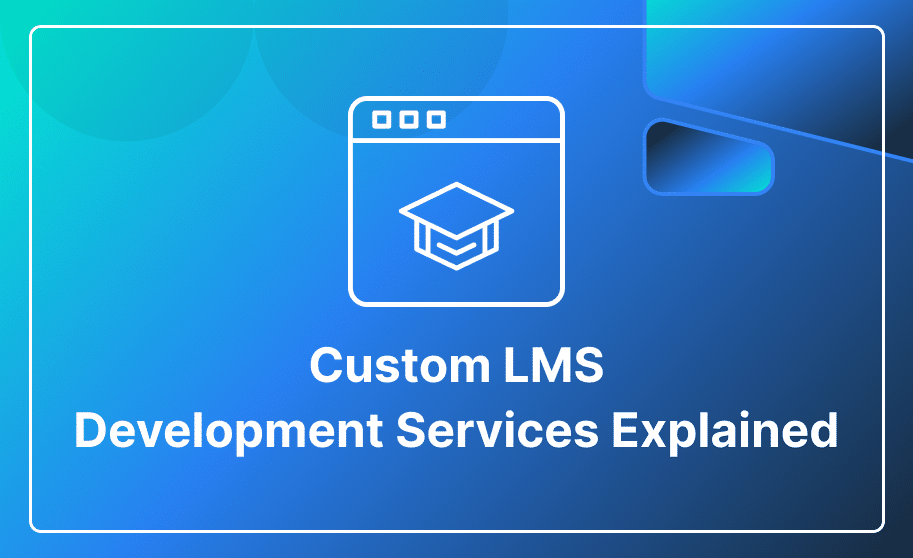The main objective for software development companies and their clients is cost-effective software production without compromising quality and within the shortest time. To achieve this goal, proper planning and effective management of the development process with the right methodology is important.
Various software engineering methodologies play an important role in reducing the time, resources, and costs required for project realization. However, the numerous existing methodologies make it increasingly challenging to choose the most suitable software development model for each specific case.This blog highlights widely used software development methodologies, discussing both their advantages and disadvantages. In this blog post, you will look closely at the types of development methodologies used by various software development companies.
What is a Software Development Methodology?
Software development methodology is a structured approach that software development teams use to efficiently plan, execute, and manage the entire software development process.
It provides a systematic set of guidelines, practices, and procedures to ensure that software projects are completed within budget, on time, and with high quality.
What Are Software Development Methodologies? A Comparison of Pros & Cons
Let’s have a look at the list of software development methodology types:
Agile Methodology:
The Agile methodology is one of the most prevailing software development methods. It is embraced by various organizations, ranging from startups to large enterprises.
The basic concept of Agile is to break the software development process into smaller phases, known as sprints, in which cross-functional teams collaborate to provide incremental value.
Pros:
- Problems are detected and fixed in the initial stages.
- Higher flexibility
- Eliminated the time of project deliverables.
- Improved communication with clients.
- High-quality final product.
- It is best suited for smaller, young companies that prioritize flexibility and communication.
Cons:
- Lack of initial clarity and project vision arises from inconsistency in product specifications.
- Estimating the resources needed for the project can become challenging.
- Documentation is not as efficient as it could be.
- There are no strict or set deadlines.
Waterfall Methodology:
This methodology follows a strict and linear process where a new stage can only start once the previous one is completed. In simple terms, each phase smoothly flows into the next, and going back to a previous stage is not allowed.
This methodology development is easy as it follows a strict sequence of completed tasks. The Waterfall software development methodology is commonly regarded as a classic representation of software development.
Pros:
- The project plan is clear and easy, outlining all goals, requirements, and important aspects before starting the software development process.
- All processes are easy to understand.
- Testing scenarios are thoroughly planned.
- Outcomes are predictable.
Cons:
- The waterfall model is inflexible, making it unsuitable for complex projects.
- The team might spend too much time on documentation instead of creating solutions to solve the user’s problems.
- Once a project advances to the testing stage, there can be no edits or changes.
- It is best suited for small and medium-sized projects, but not for long-term or research and development projects.
Prototyping Methodology:
The prototyping methodology addresses all the lapses of the software engineering process. In this software development model, developers first create a prototype of the software solution. They visualize how it will run and validate its functionality for investors or clients.
Pros:
- This method assists in identifying risks and fixing errors early in development.
- Reduced time and cost.
- Developers and testers working on a prototype can easily scale it based on client expectations.
- It is the best way to present the software product to a client or investor.
- Gathering and analyzing requirements is easy when there is no document.
- Constant communication in this method strengthens the relationship between the client and developer.
Cons:
- The first outcome is not a market-ready product.
- Frequent changes can result in various designs and code alterations, which can slow down the workflow.
Scrum Software Development Methodology:
Scrum is an Agile framework. It is one of the development methodologies that follows Agile principles and offers a specific structure for development.
A key component of the Scrum framework is the Sprint. A sprint is a defined period within Scrum development for completing specific tasks.
Pros:
- Release a functional product every 2-4 weeks.
- Flexible approach.
- Regular team meetings.
- The feedback cycle is quick, keeping the project on track.
Cons:
- It is not suitable for junior or mid-skill team members.
- Accurate estimates of time or cost are important for the project to be successful.
- It is less effective for large projects.
Lean Methodology:
Lean software development is one of those software engineering methodologies that are quite similar to Agile. In essence, the Lean development methodology is often known for its MVP strategy.
The Lean methodology focuses on creating cost-effective and adaptable software. Based on lean manufacturing principles, it optimizes resources by working with only one-third of the usual funds, human efforts, and production time.
Pros:
- It is best for startups.
- Shortest time-to-market.
- Quick development.
- It is Efficient for budget control.
Cons:
- Limited Flexibility.
- Limited experience and a lack of expertise may not be effective if the team works independently.
- There is a risk of delays due to specific bottlenecks or insufficient resources.
DevOps Software Development Methodology:
Recently, DevOps has become a popular methodology. DevOps is an organizational culture and a set of activities.
DevOps involves the practice of software engineers participating in every stage of the software development process, from design and testing to deployment.
Pros:
- Collaboration of both teams in project activities speeds up software delivery.
- Continuous delivery is a part of DevOps services, allowing a company to innovate and make product improvements as needed.
Cons:
- DevOps relies on automation, infrastructure management, and tools. Setting up and managing these tools and infrastructure can be tricky and may need regular maintenance and updates.
- Ensuring Security and compliance can pose challenges.
Feature-Driven Methodology:
Feature-Driven Development or FDD is a software development methodology based on Agile with a simple objective to avoid confusion that can result in costly rework.
It follows a five-step process:
- Model Creation
- Create a feature list
- Plan by feature
- Design by functionality
- Build
Pros:
- Best suited for large, long-term, and ongoing projects.
- Provide a detailed understanding of the project’s scope, goals, and context.
- Uses the pre-set standards to simplify the development process.
- Based on a user-centric approach, where the result depends on the user opinions.
Cons:
- It is not ideal for small organizations and smaller projects.
- Requires multiple experienced developers to monitor the process.
- Challenging to guarantee a strict deadline.
- Does not provide written documentation for the clients, only the communication among developers during the project launching cycle.
Rapid Application Development (RAD):
Rapid Application Development is the best software development methodology that centers on the idea of fast development cycles and quick delivery of functional software.
Software product development is made quicker and of excellent quality by using focus groups to collect requirements, creating prototypes, and user testing. reusing software parts, continuous reviews, and informal communication.
Pros:
- RAD focuses on fast iterations and quick prototyping, enabling the swift delivery of functional software.
- Enhanced customer involvement in the development process.
- It embraces changes and provides flexibility to adapt to evolving requirements.
Cons:
- It is not practical for projects with low budgets.
- Rapid iterations in RAD may introduce compatibility issues with existing systems or technologies.
Spiral Development Model:
The primary idea is to mitigate risks in the initial stages of the project. The developing procedures gradually move from smaller levels to the big ones. The approach combines waterfall concepts with iterations.
In a spiral model, moving from one phase to another involves completing and removing risks before moving forward.
Pros:
- It is ideal for mission-critical and long-term projects.
- The process of estimating costs is easy.
- Repeated development helps eliminate risks and maintain effective system quality control.
Cons:
- It is not best for small organizations and projects.
- There is a danger of spending more money or time than agreed.
- You have to follow the spiral model’s rules carefully.
Rational Unified Process
Based on object-oriented and web-enabled program development, the Rational Unified Process methodology is regarded as a modern approach. It operates by dividing the workflow into four different parts: analysis and design, business modeling, deployment, and implementation.
The main objective of this software development methodology is to create efficient, high-quality software without exceeding the budget or missing the timeframe.
Pros:
- It provides reliable, accurate, and strict documentation.
- Requires less time for integration.
- Reusing components reduces the project completion time.
Cons:
- Not suitable for large projects with multiple development systems.
- The delivery process may be time-consuming.
Conclusion:
In the ever-changing landscape of software development, choosing the right development methods is crucial for organizations to deliver successful software projects.
Certainly, there are various software development methodologies, each with its unique characteristics, valuable advantages, and potential drawbacks to consider.
Knowing the details of the types of software development methodologies can provide valuable insights into identifying the most successful option for your specific software development project!
Learn about the complete development process at Hashlogics by checking out our comprehensive blog, “Our Software Development Process.”


